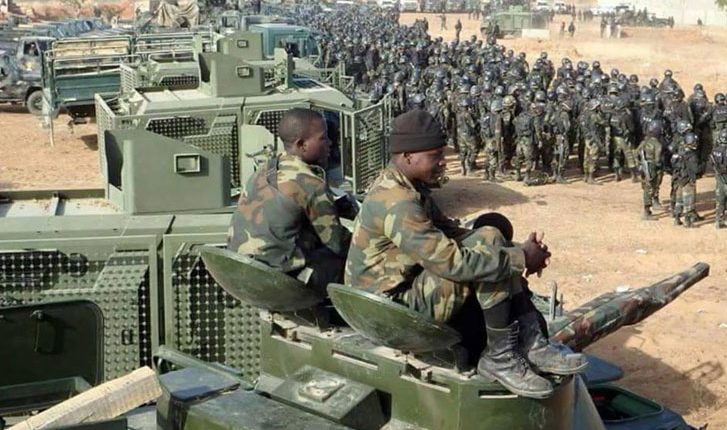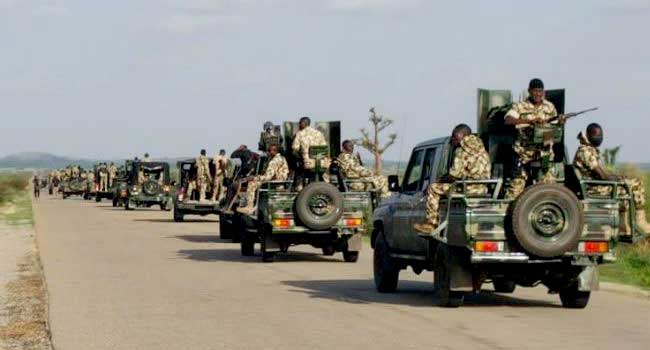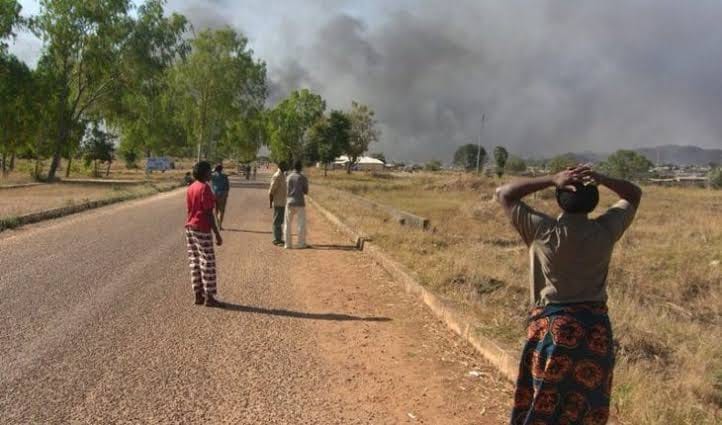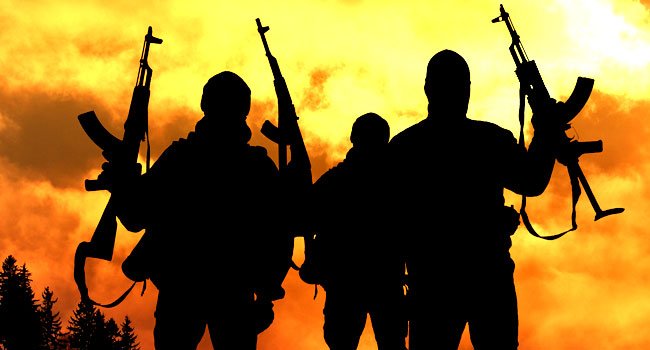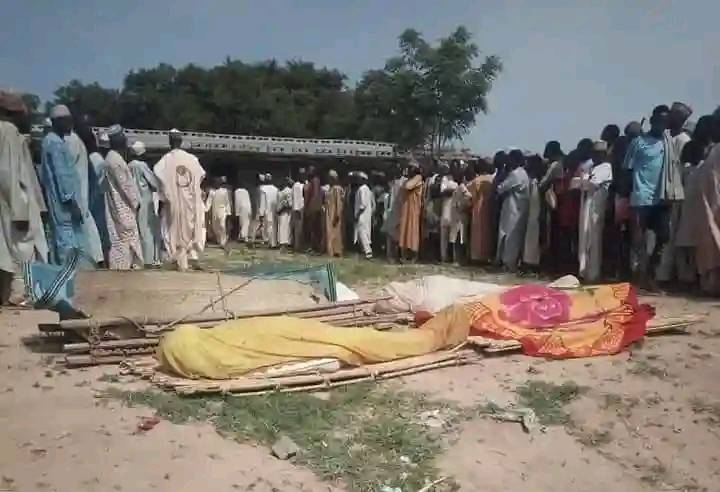Crime
Over 1,500 Lives Has Been Lost In Kaduna, Zamfara, Others To The Hand Of Terrorists In 90 Days
Terrorist have killed no fewer than 1,545 persons within the first quarter of 2022, a joint report by the Community of Practice Against Mass Atrocities and the Joint Action Civil Society Committee under the aegis of Nigeria Mourns has revealed.
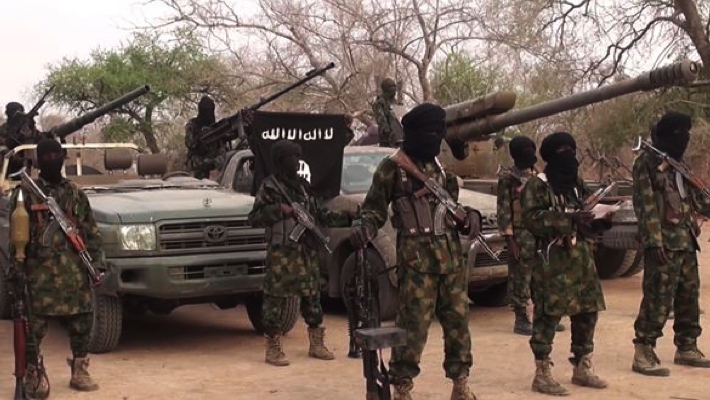
The report also disclosed that at least 1,321 persons were abducted by the terrorists between January 1 and March 30, 2022.
The North-Western states of Kaduna, Zamfara, Katsina, Kebbi and North-Central state of Niger, have come under intense attacks by the terrorists.
They have daringly attacked the Nigerian Defence Academy in Kaduna, killing two officers and abducting one senior officer. The terrorists, numbering about 200, also invaded the Kaduna Airport on March 26, killing a Nigerian Airspace Management Agency staff member patrolling the runway.
The exchange of gunshot between the criminals and soldiers at the airport also led to the delay in the takeoff of a scheduled aircraft.
Outlining the attacks across the country, the group noted that earlier in the year, some terrorists in Kebbi State killed more than 65 persons in a single attack.
The report stated that in Southern Kaduna, within the three months under review, over 100 deaths were recorded following repeated attacks on several communities in the area.
This is in spite of the fact that Kaduna State is home to several military bases and formations, including the Nigerian Defence Academy and 1 Division, Nigerian Army Barracks and Nigerian Police College, Kaduna, amongst others.
Other attacks in the report included the siege on communities in Niger State, the ‘takeover’ of the Suleja-Abuja Road by terrorists in the past month; the increase in cases of kidnapping in the past month; and the continued killings in the South-East, which claimed many lives.
On March 31, a former federal lawmaker, Senator Shehu Sani, raised the alarm that bandits blocked the Abuja-Kaduna highway, preventing travellers and other road users from accessing the road. In a tweet on his official Twitter handle, @ShehuSani, he alleged that road users had begun turning back from the road to seek alternative routes and prevent a possible attack on them.
“I just got a distress call that bandits in large numbers have again blocked the Kaduna-Abuja Road this afternoon. Travellers are speedily turning backwards,” the tweet read.
Later in the evening, he wrote, “The kidnappers are freely making calls to the families of their hostages. What happened to the SIM card registration and the NIN (National Identification Number) hoopla?”
Sani had earlier in the day said that with Nigeria’s worsening security situation, Nigerians should be allowed to officially carry weapons to defend themselves.
In what has become a national tragedy, the terrorists attacked a train on the Abuja-Kaduna route at about 7:43pm. The Nigerian Railway Corporation said 398 tickets were bought but only 362 passengers were validated.
The groups however condemned the spate of insecurity across the country, while calling on the regime of the President, Maj.-Gen. Muhammadu Buhari to take action to mitigate further attacks by the terrorist groups.
In a petition on change.org, which had since garnered over 30,000 signatures as of the time of filing this report, the groups wrote, “We are (also) alarmed by the brazenness with which these ‘technically defeated terrorists’ continue to compromise our individual and collective security as Nigerians. More importantly, we are concerned by the government’s apparent nonchalance evidenced by their actions.
“Since the Kaduna train attack, the government has failed to account for the number of persons rescued, the missing and the dead, failing in its primary purpose as provided for in Section 14(2)(b) of the Nigerian Constitution, which states that the security and welfare of the people shall be the primary purpose of government and Section 17(2) (c): ‘governmental actions shall be humane’.
“We point out that the level of humaneness envisioned by our constitution is lacking in the actions of the government in each of these incidents, and that these actions rather suggest that the value for human life in Nigeria is now at its lowest and that the government is failing in its constitutional duties.”
The groups also accused the President of ignoring the tragedy that has resulted in the loss of valuable Nigerian lives, while faulting the circular by the Office of the Head of Service of the Federation that directed permanent secretaries to mobilise support for the World Cup qualifier match by closing their offices by 1pm.
They said the circular disregarded the trauma of millions of Nigerians and ignored the tragedy which had resulted in the loss of valuable lives.
The groups asked the government to conduct an independent inquiry into the incident, in the light of the statement credited to the Minister of Transportation, Mr Rotimi Amaechi, that the cabinet did not honour his proposal for the procurement of critical surveillance infrastructure for the rail tracks.
Terrorists kill over 927 in Kaduna, Zamfara, Niger
Meanwhile, the most hit states in the killings were Kaduna, Zamfara and Niger where at least 927 innocent people were reported to have been killed by terrorists within the first quarter of the year.
The figure is based only on a compilation of media reports and data obtained from the National Security Tracker, an initiative of the Council of Foreign Relations, a United States think tank. The casualty figure may however be higher.
It was also learnt that apart from Kaduna State which presents a quarterly report on insecurity, other states do not provide data on the deaths and abductions.
The calculations by Saturday PUNCH showed that in Kaduna State, at least 223 people were killed while in Niger State, 397 lives were lost. In Zamfara State, where the Federal Government imposed a ‘no fly’ order, at least 307 people were killed by the criminals.
The three states also witnessed a combined abduction of at least 904 persons.
In Niger State, Governor Sani Bello said on January 17 that at least 220 people were killed by the terrorists within the first two weeks of 2022.
It was observed that Shiroro was the most affected local government area in the state, with 34 persons killed on January 12, another 18 persons killed on January 29 and 20 persons killed on February 3.
On February 5, no less than 44 persons were killed while 31 persons were abducted, and on February 21, about 14 persons were murdered by the criminals in Galape, a community in the local government.
In Kaduna State, where the terrorists bombed a passenger train around Rijana inwards Rigasa on Monday, the most affected local government areas are Igbabi, Zaria, Giwa, Chikun, Kajuru and Zangon Kataf.
The biggest carnage was in Dilalai community, Giwa Local Government Area where at least 50 people were killed on March 20.
In Zamfara State, no fewer than 200 people in Anka and Bukkyum communities were killed on January 5, the biggest single attack so far this year.
Despite the rising insecurity, however, security experts have warned against the declaration of state of emergency in the North-West.
In separate interviews, the experts, Patrick Agbambu, Timothy Avele and a former Director of the Department of State Services, Mike Ejiofor, said a state of emergency did not achieve the desired result the last time it was declared.
Ejiofor warned against collapsing the democratic structure, adding that it did not achieve the desired result during the administration of former President Olusegun Obasanjo when it was introduced in Plateau State.
He said, “My idea of declaration of state of emergency is prioritising our security architecture which the president has done, in terms of declaration of bandits and terrorists. Now that they have been declared as terrorists why don’t we use the Super Tucanos to go after these terrorists and bomb them instead of telling us 1,000 have been killed, 1,000 have surrendered and the problem keeps getting worse.”
“You remember in Zamfara State when telecommunications network was shut down, did it stop? Plateau State, the same thing, even in Borno State. I think we should base our strategy on tactical operations.”
On his part, Avele, who is the Managing Director, Agent-X Security Group, said state of emergency was not the solution to insecurity in the region.
He said, “The truth is that if our security agencies and the military continue reacting rather than being proactive, we will continue to face even deadlier attacks in the days to come. We need political will from the President to end this menace once and for all.”
Avele said there was a need for all security agencies including the National Intelligence Agency and the Nigeria Customs Service to double their intelligence gathering capabilities.
“They should also go after the sponsors of these terrorists by simply tracking the money paid as ransom by victims,” he added, while advising security operatives to comb the forests and bandits’ escape routes day and night in Niger, Katsina, Zamfara, Sokoto and Kaduna states.
Also, Agbambu, who is the Chief Executive Officer, Security Watch Africa Initiatives, told Saturday PUNCH that a holistic approach should be adopted.
He added, “I think rather than focus on a certain region, why not extend it to other parts of the country? Insecurity has been a national problem. Rather than declare a state of emergency in the northern part of the country, the President should declare a state of emergency on national security.
“However, I must state that measures to address our insecurity should be holistic. But I don’t think that is the solution we have had during the Obasanjo administration in Plateau State; that didn’t solve the problem. It may seem to bring the temporary solution to what we think is the issue but it is not the best.”
